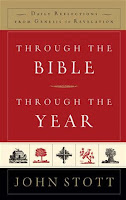The Creator and Creation
Genesis One is more about the Creator than the creation. When read against its original background of Ancient Near Eastern creation myths, Genesis 1 comes across as a poetic monotheistic polemic - something that could have been memorized and sung in the liturgy. Using the world- picture of the ancient world ("let there be an expanse in the midst of the waters....let the waters be gathered into one place, and let the dry land appear"), it simultaneously and fundamentally shatters its world-view (the underlying vision of reality). The sun, moon and stars are no longer seen as deities but now are parts of the one God's creation. Indeed, the only object that shares the divine nature ("in our image") are humans, who now stand at the apex of creation. The objects of worship in the ancient world - astral objects and animals - are actually below man in the view of reality portrayed here. The subliminal message of Genesis one would be, "why would you bow down to something beneath you?"
Stott expresses my sense of this opening chapter: "From this crude polytheism it is a relief to turn to the ethical monotheism of Genesis 1."
Let us consider the implications of this radical breakthrough into the nature of Reality. What does it mean to live in a world that is a product of God's free will and love (He did not make us out of necessity nor constraint) as opposed to a world that is produced from the body of a deceased god, the product of a divine battle amongst the gods, which was the basis of all the ancient creation myths. The Bible grounds all of reality - all that is - in the overflowing love life of the Trinity.
I suggest three important implications - or matters to discuss - for our lives of discipleship:
1) Creation is a gift, not a given. As gift, our relation to it is one of stewardship. There is a built-in ecology in our relationship to the world. Just as our society has developed an ecology for trees, for example, there is a deeper ecology of persons. The gift-ness of persons places limits on our behavior, our speech toward them. Stott wisely references James 3:7-12 in his discussion of persons as God's image-bearers. He writes: "The sanctity of human life arises from the value of God's image bearers (9:6). Human beings are god-like beings. They deserve to be loved and served."
2) Since creation is not a necessity, there is freedom.
3) The appropriate response to gift (and freedom) is wonder and gratitude.
Genesis three will document what occurs when wonder and gratitude, and the trust underlying them, are lost. Paul comments on this theme in Romans one, "for although they knew God, they did not honor him as God or give thanks to him but they became futile in their thinking, and their foolish hearts were darkened." We anticipate Genesis three and its aftermath in these themes. These early chapters teach us how to read all that follow......
What do you think?

Tory,
ReplyDeleteOur family is thrilled to be going through this study with you. It wasn't until we had our near-new used $1 Stott book in our hands (ha ha, thank you Amazon) that we realized this was exactly what we've desired for so long but didn't know how to put into words. This is exactly what we were looking for in a "Bible in a year" program.
Thank you for doing this. Thank you for being YOU, a divine image-bearer. We speak often in our family of being divine image-bearers, that coming into the presence of any human being is a humbling experience because we are standing before the divine image. I love your words, "The gift-ness of persons places limits on our behavior, our speech toward them."
I pray as we go through this study with your God-directed wisdom we will all grow in our virtue as Christians to seek truth, beauty, and goodness (and the true freedom that leads us to) for the sake of our only Savior and Lord, for His Kingdom purposes! Amen!
With gratitude and love in our fellowship in the gospel of grace,
Susan for the Pearsons
Susan,
ReplyDeleteI am so glad you are reading the Bible as a family. You will be blessed!
Tory+